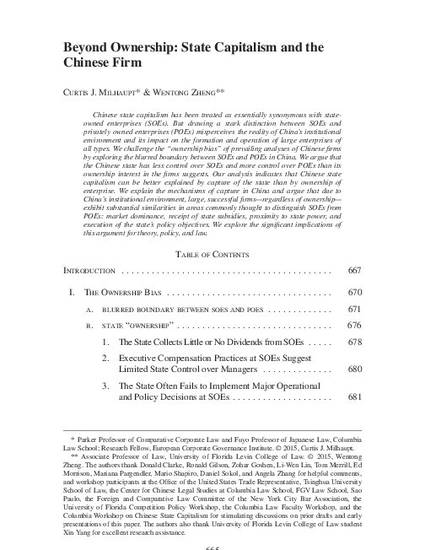
Chinese state capitalism has been treated as essentially synonymous with state-owned enterprises (SOEs). But drawing a stark distinction between SOEs and privately owned enterprises (POEs) misperceives the reality of China’s institutional environment and its impact on the formation and operation of large enterprises of all types. We challenge the “ownership bias” of prevailing analyses of Chinese firms by exploring the blurred boundary between SOEs and POEs in China. We argue that the Chinese state has less control over SOEs and more control over POEs than its ownership interest in the firms suggests. Our analysis indicates that Chinese state capitalism can be better explained by capture of the state than by ownership of enterprise. We explain the mechanisms of capture in China and argue that due to China’s institutional environment, large, successful firms—regardless of ownership— exhibit substantial similarities in areas commonly thought to distinguish SOEs from POEs: market dominance, receipt of state subsidies, proximity to state power, and execution of the state’s policy objectives. We explore the significant implications of this argument for theory, policy, and law.
